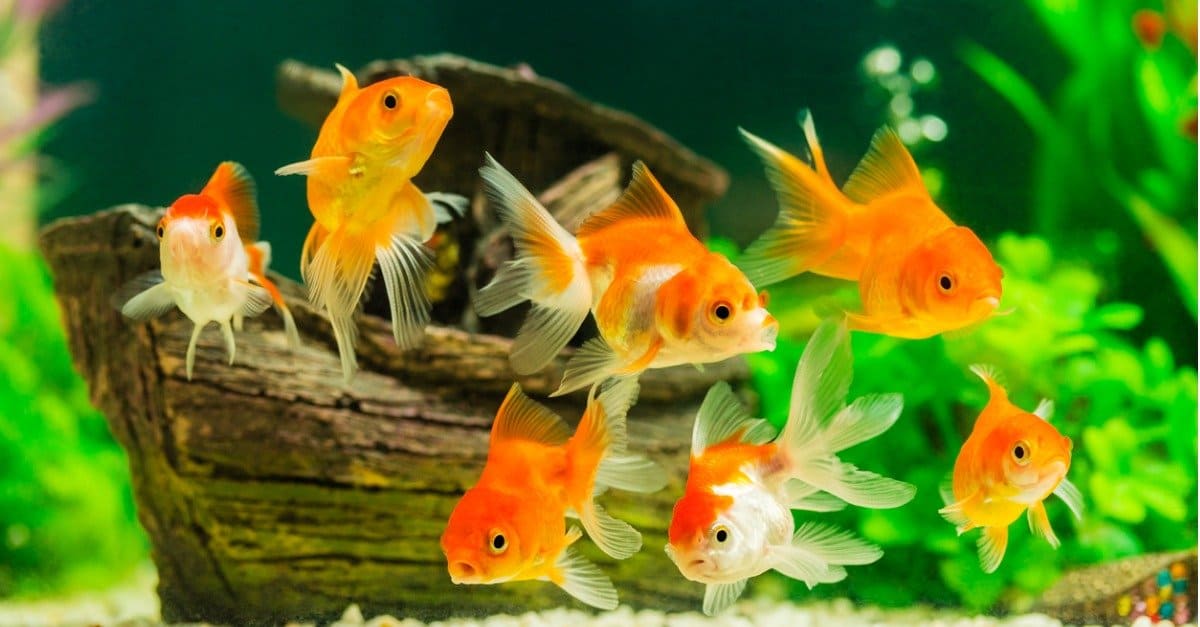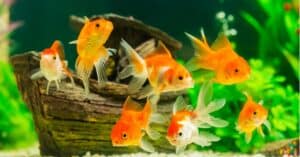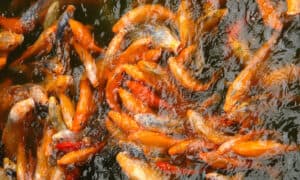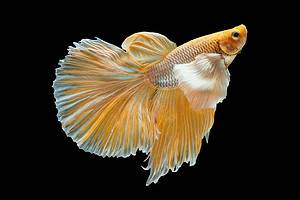If you own a fish, you may be curious how long they can go without eating. Are you able to take a week-long vacation? Will they be in danger if you leave for a few days? We will answer all the questions you may have regarding how long your pet goldfish can go without food.
Generally speaking, goldfish can go without eating for two weeks. Does this mean you should let them go that long? Let’s dive into the facts and helpful tips to make sure your pet stays healthy while you’re away.
How Long Can Goldfish Live Without Eating?
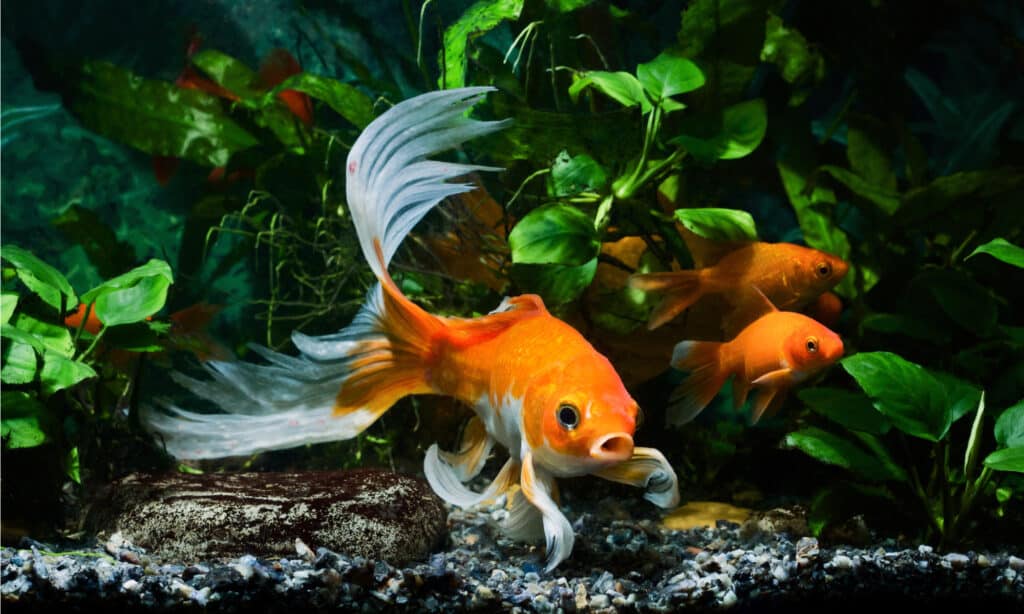
Goldfish don’t eat much, but they do eat often.
©Aleron Val/Shutterstock.com
A goldfish can go for around 15 days without eating. But there’s no necessity or justification for leaving your pet unfed. Although their metabolism can go for extended periods of time without food, it is not a good idea to do so.
Even while goldfish don’t typically eat every single day in their natural habitat, if they’ve gotten used to eating twice or three times every day, going for extended periods without food might be harmful.
Ask yourself how often you feed your fish now. That will play a role in how long your specific pet can last between feedings.
1. Know the Signs That Your Fish Is Hungry
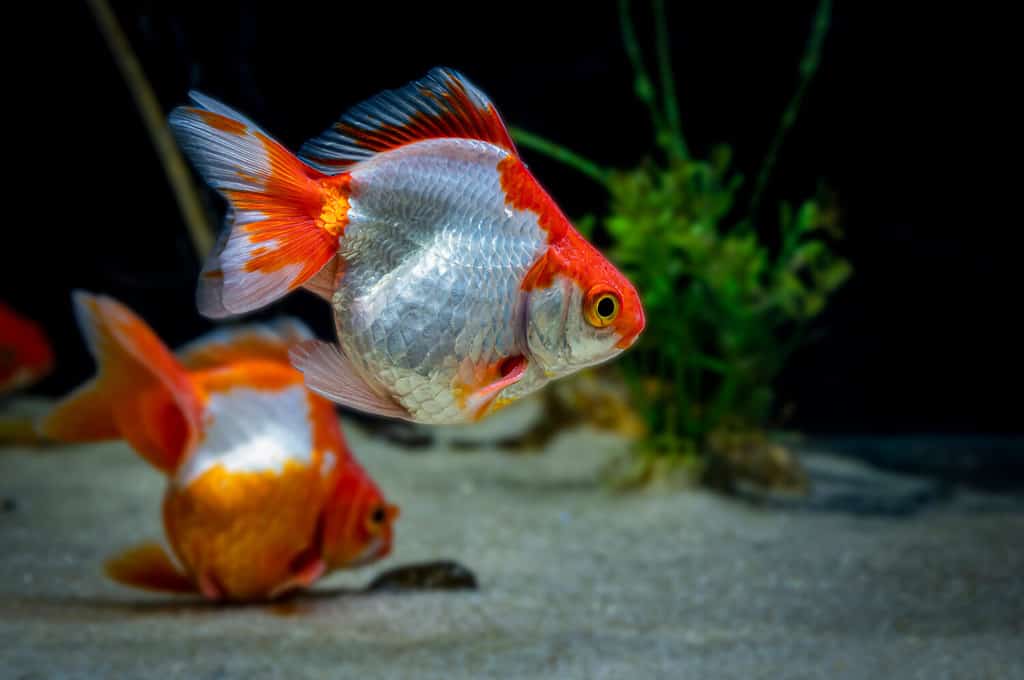
Goldfish have no problem showing signs that they’re hungry.
©Sad Agus/Shutterstock.com
Even if you are aware of the length of time your goldfish can go between meals, it still might occasionally show indications of hunger. Your goldfish is hunting for food if it swims in parts of the tank where it normally avoids swimming.
If it starts digging in the substrate, pay close attention because this indicates that it is hungry and trying to find food. You could be perplexed if fish suddenly start foraging or exploring the surface of the water in the aquarium when they generally don’t.
These signs point to your fish being hungry and looking for food. Another indication that your goldfish is starving is if it acts aggressively or eats rapidly. They certainly eat swiftly, but if you notice that one is eating more rapidly than usual, it was presumably starving for a while.
Your goldfish may need to eat if you see it moving slowly or acting lethargic for an extended period of time after not receiving enough food. When hungry, certain fish have a tendency to pester and harass their tank mates, but this doesn’t always indicate that they are actually hungry; there are many other potential causes for the hostility.
2. Feed Your Goldfish Proper Food
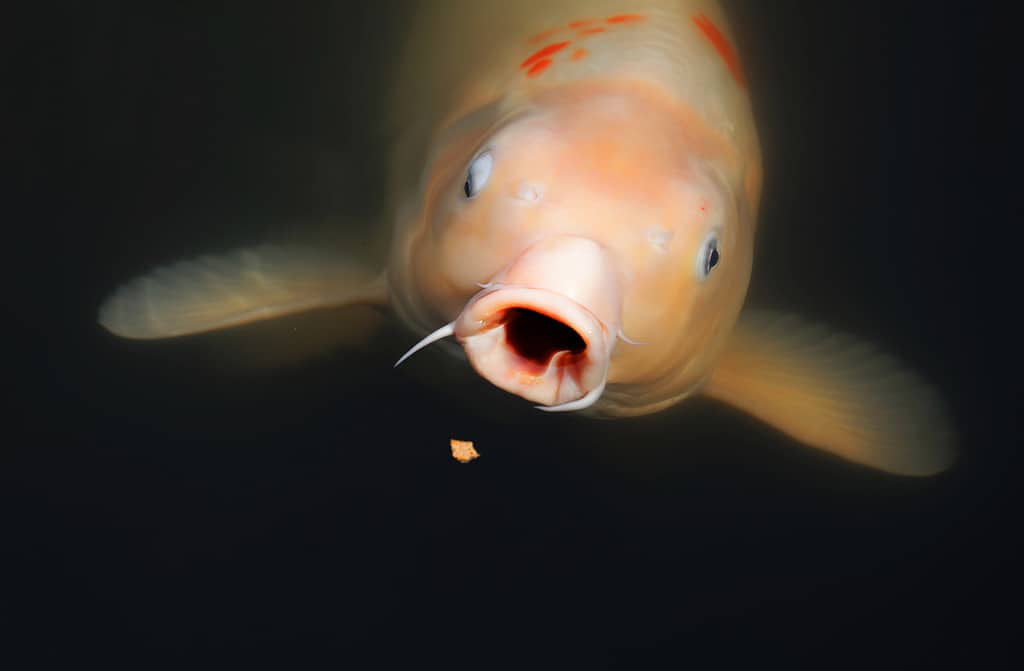
Flakes are a crucial component of a goldfish diet.
©HasseChr/iStock via Getty Images
It is crucial to feed your fish the right things if you want them to grow and thrive. Goldfish are opportunistic eaters, but you can manage their feeding craze. If you don’t, your fish can die from intestinal problems brought on by overfeeding.
They love crickets, shrimp, bloodworms, and other organisms. You can feed these to your finned friend live, frozen, or freeze-dried. You can also feed them a healthy pellet or flake variety.
3. Keep a Clean Tank
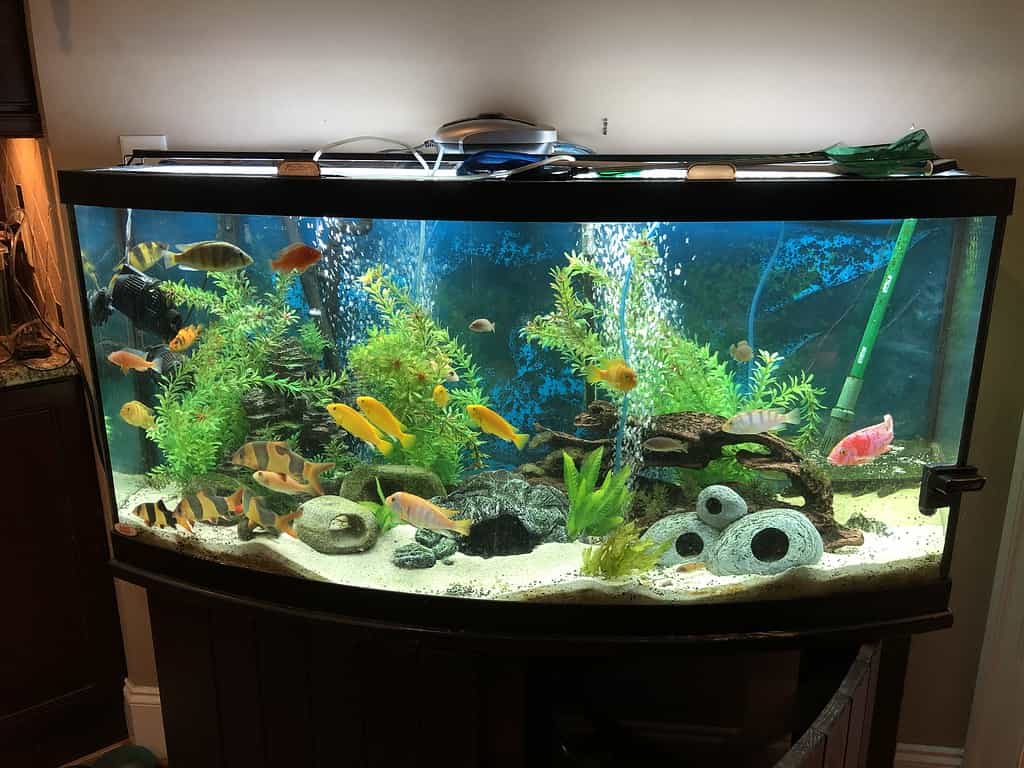
Having a clean tank makes a world of difference to a fish’s overall health.
©LizWinfreyV, CC BY-SA 4.0, via Wikimedia Commons – Original / License
Keep in mind that your fish generate larger amounts of waste the more they consume. In the end, such contaminants may result in a number of illnesses or possibly the death of your fish. The more you feed your fish, the more often you’ll need to clean the tank.
To ensure that your fish enjoy a healthy life in their home, it is essential to understand how they eat and discover which foods are beneficial for them.
4. Give Your Fish the Right Serving Size
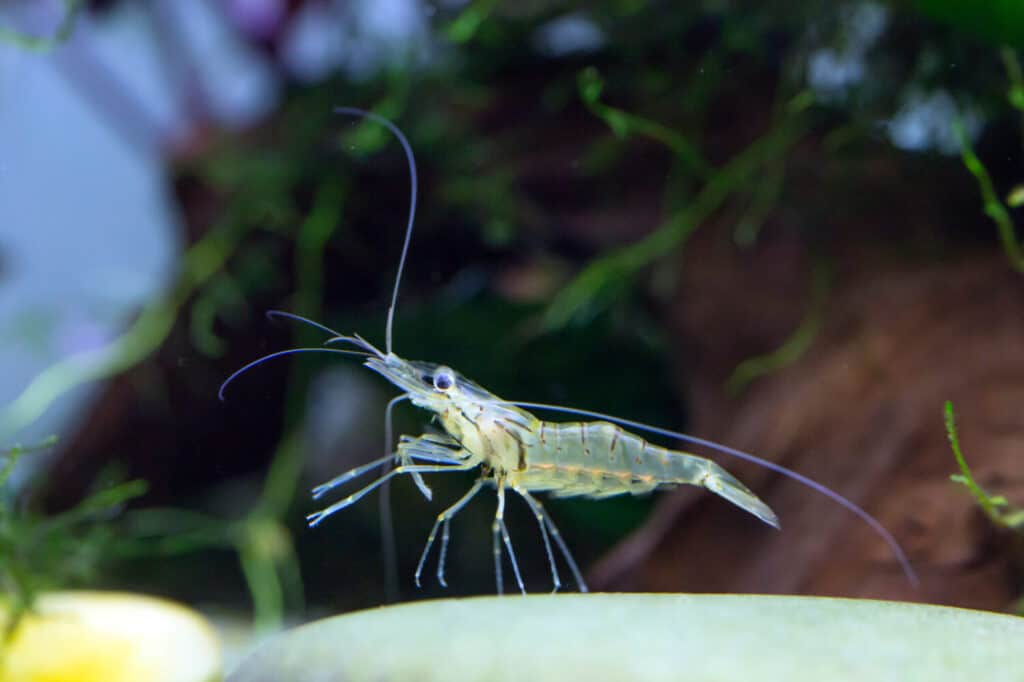
Goldfish love to snack on ghost shrimp!
©boban_nz/Shutterstock.com
You should give your goldfish as much food as it can consume in one to two minutes, twice or three times every day. As a result, the food can be prepared without excessive rotting and tank contamination.
Don’t offer your goldfish food bits bigger than its eye because that is how big a portion it can take at one time. The secret is giving them little meals numerous times a day. Due to their tiny stomachs, goldfish should be fed regularly.
Tips For Feeding Your Goldfish When You’re Away
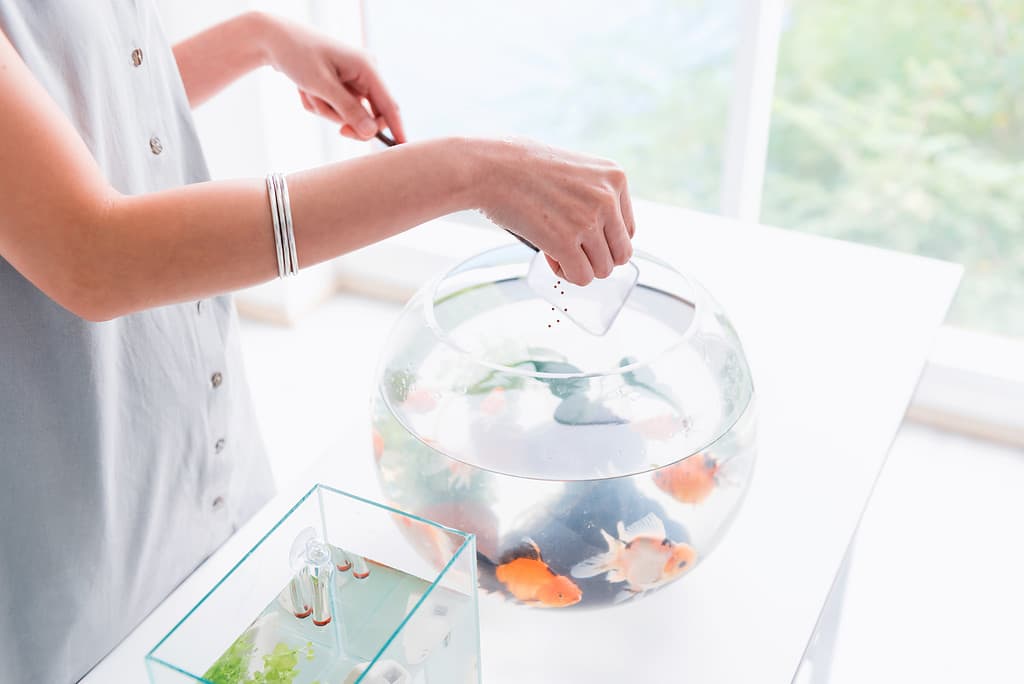
There are several ways to keep your fish satiated while you’re away!
©graphixchon/iStock via Getty Images
Whether you work long hours or you’re planning a trip, it’s essential to have a feeding plan for your fish. Here are some tips that will keep your pet satiated while you’re gone.
1. Use a Feeding Block
When nobody is available to feed fish over the holidays or vacations, feeding blocks give fish parents a sense of security. Due to the fact that feeding blocks disintegrate gradually in water, your fish will have plenty to eat while you’re gone on a trip.
Pro tip: You should choose a feeder block that is the right size for the number of days you will be away from home.
2. Get an Automatic Feeder
Just like cats and dogs, fish can eat from automatic feeders. In practically every animal-related store and online, automatic feeders are available in a variety of sizes and styles.
The majority of automatic feeders for goldfish are compact and placed on the aquarium’s side. An automatic fish feeder will routinely discharge food, based on the number of fish you have in the tank, making sure they are all nourished without ever going overboard.
3. Hire a Fish-Sitter
If you’d hire someone to watch your dog or cat while you’re away, why not your fish? To care for your goldfish while you’re absent from your home, consider asking a friend or paying a professional.
Thank you for reading! Have some feedback for us? Contact the AZ Animals editorial team.

